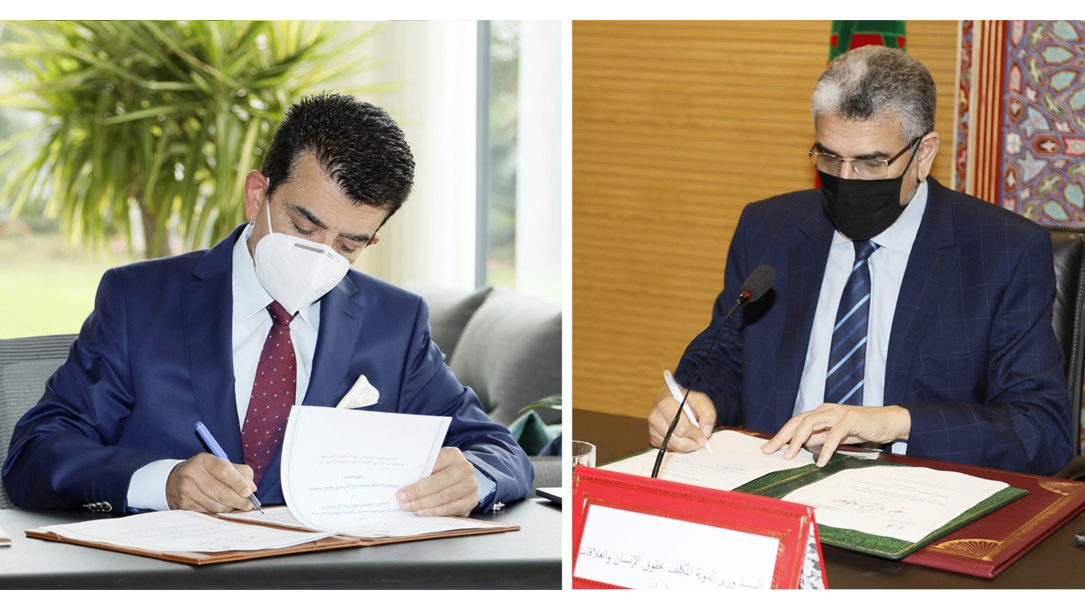
Partnership Agreement between ICESCO and Moroccan Ministry of State in charge of Human Rights

11 December 2020
The Islamic World Educational, Scientific, and Cultural Organization (ICESCO) and the Ministry of State in charge of Human Rights and Relations with Parliament (Ministerial Delegate in charge of Human Rights) in Morocco signed a framework partnership agreement to ensure coordination and cooperation and achieve the strategic objectives of the National Action Plan in the field of democracy and human rights.
Dr. Salim M. AlMalik, ICESCO Director-General (DG), and Mr. Mustafa Ramid, Moroccan Minister of State in charge of Human Rights and Relations with Parliament, signed the agreement during the ceremony that the Ministry organized yesterday, December 10, 2020, on the 72nd anniversary of the adoption of the Universal Declaration of Human Rights, under the theme “Towards promoting our efforts to protect human rights.”
The agreement is in line with Morocco’s obligations in the field of basic human rights, included in the Constitution of 2011.
The agreement also conforms with ICESCO’s mission, which consists of mobilizing a stronger commitment of the official bodies and civil society institutions in countries of the Islamic World towards comprehensive and integrated cultural development.

The measures for the development include safeguarding and conserving the tangible and intangible heritage, the development of investment in cultural industries, and the consolidation of the Islamic identity open to other cultures. More measures include the promotion of cultural dialogue, the dissemination of the values of peace and the principles of citizenship, human rights and positive coexistence, and the correction of misconceptions about Islam and Muslims, as mentioned in Article 4 of the Charter ICESCO.
The agreement provides that the two parties pledge to cooperate to achieve the specific goals outlined in the procedures as part of the National Action Plan in the field of democracy and human rights. Both fields fall under ICESCO’s areas of competence, including democracy and governance – economic, social, cultural, and environmental rights – protection of the rights of specific groups – legal and institutional framework.
The agreement also provides for forming a follow-up committee that will oversee all stages of its implementation. The focus is on developing a result-based action plan and preparing a schedule for the implementation of the activities while identifying all the necessary arrangements.
The agreement also focuses on proposals to achieve several goals in partnering with other potential stakeholders, sharing the documents of all launched initiatives for approval, and submitting periodic reports to officials of the two parties on the progress in the implementation of the agreement.





